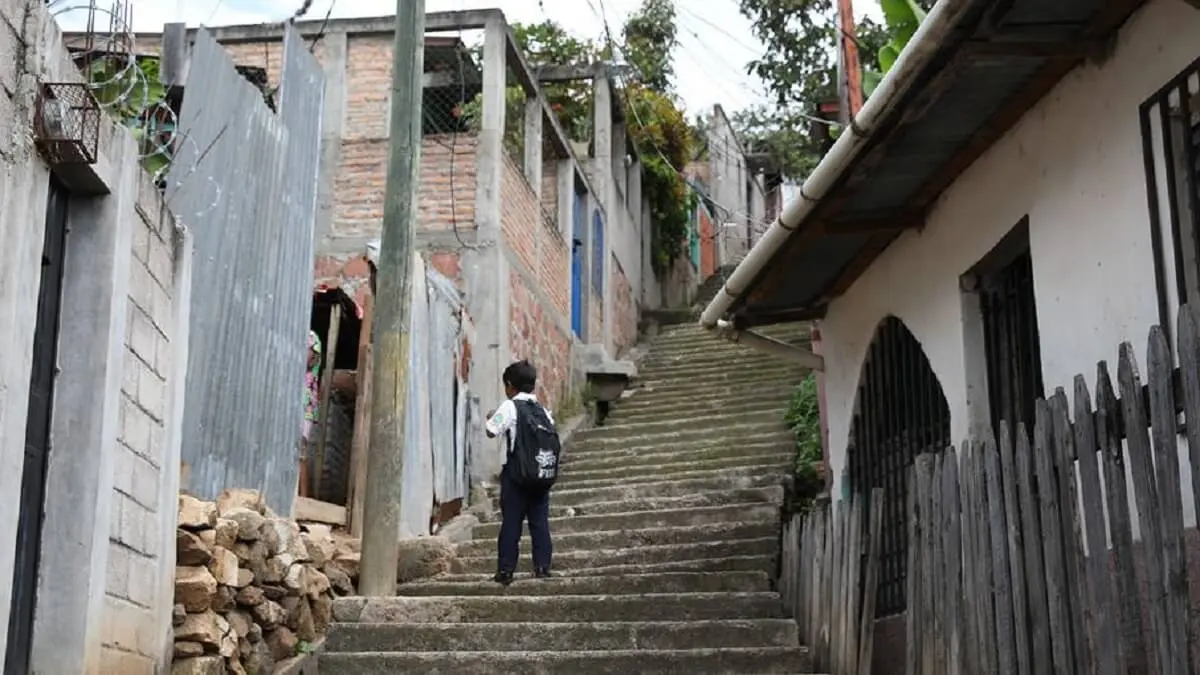Honduras: violence, land conflicts, corruption and impunity defy human rights

Persistent violence, including gender-based violence, land conflicts and impunity are among the most serious human rights challenges in Honduras, the UN High Commissioner for Human Rights said as he presented his latest report on the country.
"While I note a reduction in homicides, violence and insecurity remain deeply entrenched and common, particularly affecting women and LGBTQ+ people," said Volker Türk.
Last year, 380 violent deaths of women were recorded, as well as 47 murders of LGBTQ+ people. While specialised protocols for criminal justice institutions to address the high rates of violence against women are still lacking, according to the report.
For the state to ensure a safe and secure environment free of organised crime, it needs the resources and policies necessary to address the huge inequalities in the country, illicit financial flows, taxation and corruption, Türk recommends.
"It is also important to develop a coherent human rights-based national security policy that incorporates preventive measures," he says.
The High Commissioner says he is concerned about the increasing militarisation of public security and the penitentiary system.
"For example, following the tragic attack in June on the Támara women's prison, in which 46 women prisoners were killed, the Government handed over the administration of the penitentiary system to the military police. We have since received information that some of the actions of the military police may amount to ill-treatment," Türk said.
He was particularly concerned about the current state of emergency, which has been in force for more than 15 months, and which gives the national police and military police powers to carry out arrests and searches without warrants.
Discrimination against indigenous and Afro-descendant peoples
Conflicts over land, territory and natural resources persist throughout Honduras, with indigenous peoples, Afro-Honduran peoples and peasants the most affected by violence, land grabbing and evictions.
"I am very concerned that Honduras remains one of the most dangerous countries in the world for people defending land, territory and the environment," said Türk.
Attacks against human rights defenders and journalists increased last year, with some 561 people attacked. At least 15 human rights defenders and two journalists were killed.
"My Office strongly encourages the authorities to strengthen the National Protection Mechanism and to implement all necessary institutional measures to protect human rights defenders," he added.
On the other hand, Türk welcomed the repeal and reform of the so-called "Impunity Pact" decrees by the National Congress, as well as the government's willingness to address corruption.
Corruption drains the country
However, high levels of corruption and impunity continue to drain the resources available to the country, as well as eroding confidence in public institutions.
"I urge Honduras to take measures to ensure transparency and accountability, including measures to strengthen the judiciary, the Public Prosecutor's Office and other key national anti-corruption institutions, and to guarantee their independence," he added.
He also welcomed the new election process for the new Supreme Court of Justice, and the emphasis on transparency, accountability and gender parity: "This represents a concrete opportunity for Honduras to strengthen the rule of law and access to justice".
At the same time, she said her Office continues to urge progress on investigations into serious violations committed in the 1980s, the 2009 coup d'état and the 2017 post-election crisis.
"I also welcome the recently passed historic bill that protects natural resources and protected areas in favour of the rights of affected communities. This law, together with the executive decree to guarantee the ancestral and property rights of the Garifuna people, are crucial to advance the enjoyment of the rights of the most vulnerable," he said.










